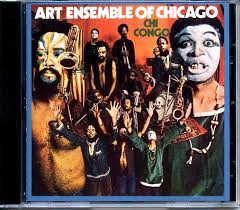What do we mean by “comfort zone”? People use it frequently, especially in self-improvement and creativity-related writing. Has it become an empty phrase? It’s so subjective–which is entirely the point, I suppose. If we can manage to agree on what the idea means, we still must confront the continuum of such a zone. I reflect on my tolerance for aesthetic discomfort often, especially when I am reading or observing creative work. For example, I like listening to jazz; some jazz soothes, some excites, and some takes effort to hear–I have to be in the mood for confrontational experiments with sound such as performances by The Art Ensemble of Chicago.
Similarly, while I love art, I cannot imagine living with “Guernica” on the wall…or Goya’s “The Third of May.” Or anything by Francis Bacon. Some creative works are meant to push viewers out of their comfort zones; some are no doubt as uncomfortable to create as they are to view. A work of art that takes emotional and craft risks puts the artist not only at risk of critical rage or misinterpretation of intentions, but also at the very personal risk of failure.
And that effort is important, that willingness to fail. Without it, nothing invented or imagined can be achieved.
I am not a good painter, and trying to paint clouds or winter trees or landscapes means I am going to paint bad pictures. I have better gardening skills than painting skills, but I love trying a new seed or plant or cultivation method, even though the results often don’t succeed. Pushing the comfort zone has mixed but invaluable rewards.
Poems practically cry out to enter such territory. Often I find that even poems that contain in their lines and imagery moments of hope or great love and comfort simultaneously discomfit me. It fascinates me; how does the poet first compose, then revisit and revise, the poem that must surely be even more uncomfortable to write–to confront? (Search for any anthology on a difficult topic and therein will be many such poems.) Most of us prefer to avoid pain zones, so we stay within our comfort zones.
~
In Zechariah 12:2, the Lord promises terrible punishments for the enemies of Judah. Elaine Scarry approaches the conundrum of pain’s subjectivity (among other things) in The Body in Pain. I find wonder and ideas in the continuum of pain zones, in the concept of pain as punishment versus the concept that life is dukkha and inevitably contains suffering, and many other perspectives that people take concerning anything from mild emotional stress to mental illness, age-related physical problems, various forms of “disability,” and the Wong-Baker FACES pain rating scale.
Here, from WORDPEACE online, a poem of my own that I found uncomfortable to write, and which some readers have told me is uncomfortable to read. Taking the risk:
A Cup of Reeling [for the sufferers]
“Pain is…language-destroying.” Elaine Scarry
It is I am told all in my head but the body how the body loves the head
where language resides in the soft and voluble brain
and hurt undoes every synapse until sweat and stress the bullet
between clenched teeth [as if to aid?] good god deliver me
groan swear-word ululation weep and reeling, eloquence undone.
The crucible my own right leg: fire pulley strain does not allow
gravity or, god, motion, my evidence convincing to me only to me
unavailable to others [no one privy to, spare me, my—agony—
no object but destruction of objects no intention but self-obliteration]
Pain’s constructed in waiting rooms, waiting for morphine
or anything anything; I am animal in pain and sentient in my pain.
Good god who dares believe in me now that I believe in nothing?
~

[…] Ann E. Michael, Comfort zones redux […]
LikeLike